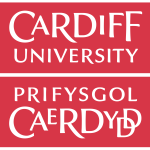Pathogen Analysis and source Tracking for Health (PATH): A One Health Approach to Tracking Waterborne Pathogens in Pakistan and Wales
Environmental degradation has severely impacted agriculture, causing losses in food security and the economy, which in turn worsens socioeconomic issues. In Pakistan, about 80% of the population is currently drinking contaminated water, risking exposure to pathogens such as E. coli, Cryptosporidium, Campylobacter, Salmonella and Shigella, and facing diseases such as dengue, malaria, salmonellosis, hepatitis, cholera, typhoid, schistosomiasis, and giardiasis. As such water security is a major issue, with water-borne diseases negatively impacting human, animal and environmental health worldwide. Currently, 75% of UK rivers fail to meet established ecological standards, with human waste contributing to 49% of these failures. Only through a One Health approach can we fill this knowledge gap and better direct funding and resources to address the issues in hand. The student will have the opportunity to contribute to real-world change, applying an interdisciplinary, mixed methods approach to compare and contrast perceptions, drivers and risk related to water quality issues within the UK and Pakistan, while establishing a knowledge and information sharing partnership between the two countries.
Supervised by Professor Jo Cable at Cardiff University. Co-supervised by Mr Luis Priegue Molinos (Dŵr Cymru Welsh Water, DCWW), Dr Sophie Watson (Cardiff University), Dr Haroon Ahmed (COMSATS University Islamabad), Mr Oliver Cumming (LSHTM). External partner is Dŵr Cymru Welsh Water (DCWW).



More details see FindaPhD